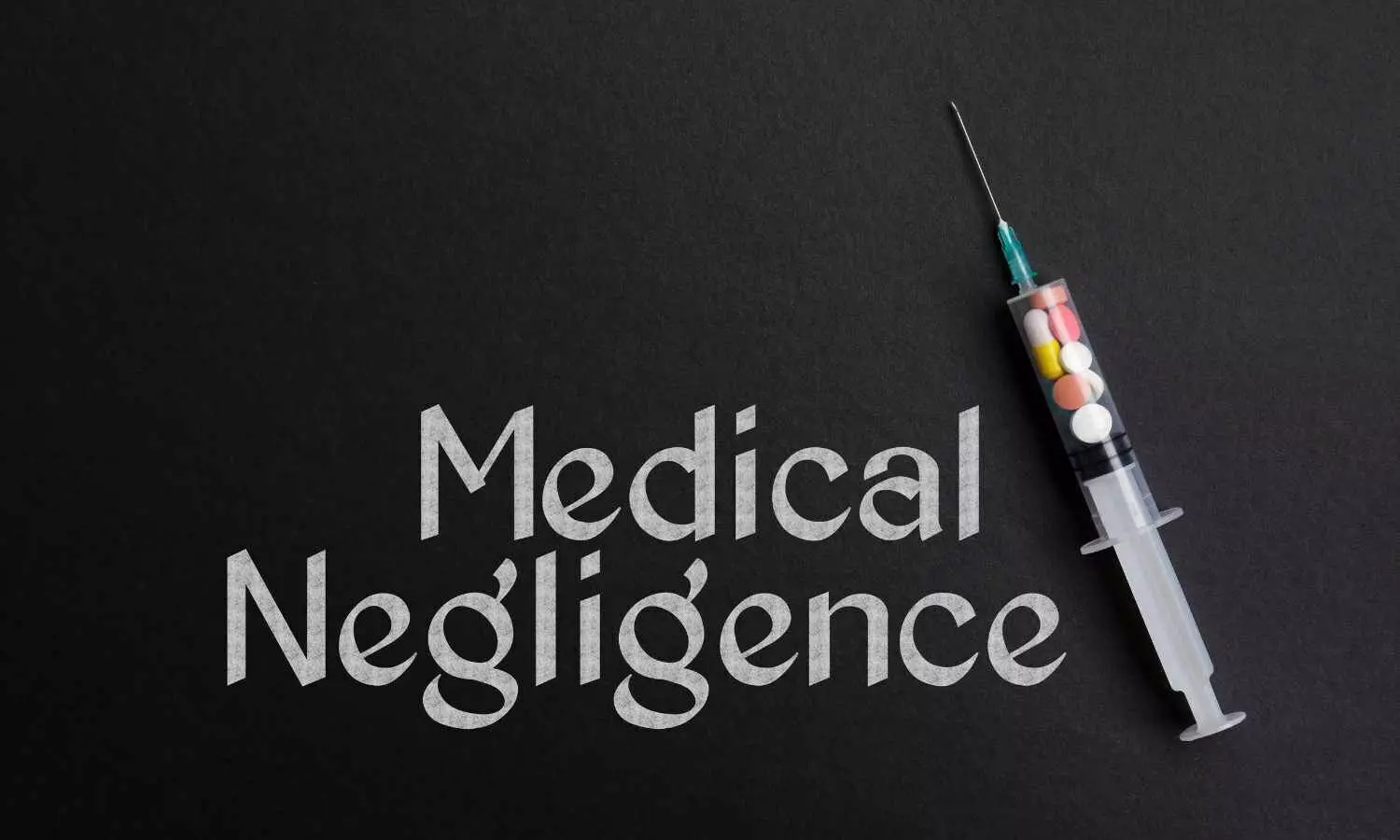Patient Dies from Septicaemia, Shock after Gallbladder Surgery: Rs 4.4 Lakh Compensation upheld Against UP Doctor, Hospital

New Delhi: The National
Consumer Disputes Redressal Commission (NCDRC) upheld the order of
the Uttar
Pradesh State Consumer Court directing a Kanpur-based hospital and its
doctor to pay Rs 4.4 lakh compensation to a man, whose wife died of septicaemia
and shock after undergoing gall bladder surgery at the hospital.
After taking note of the post-mortem report, the Apex
Consumer Court noted that the patient had indeed died of septicaemia at the age
of 26 years. Further, the Commission noted that both the District and State
Commission had held that septicaemia had developed as the hospital and doctor
did not take proper care after the first surgery.
The history of the case goes back to 2003 when the patient
(complainant’s wife) had abdominal pain and
she was consequently diagnosed with a stone in the gallbladder. For this, she
was admitted to the treating hospital to undergo surgery. Allegedly, on
20.02.2023 the surgery for
gallbladder removal was conducted without there being any surgery
facility, due to which the patient suffered septicaemia.
It was further alleged by the complainant that when there
was no relief in the abdominal pain of the patient despite the surgery, the
treating doctor conducted a second surgery on 20.04.2003, during which, the
patient’s health worsened and became critical. Following this, the patient was
shifted to another hospital. On 22.04.2003, she passed away.
The complainants alleged that the patient had died due to
negligence of the treating doctor and hospital as no proper medical examination
was conducted after the first surgery. Post-mortem of
the deceased was conducted at the second hospital after the intervention of the
Senior Superintendent of Police, Kanpur and in the report, the cause of death was
mentioned to be ‘septicaemia and shock’.
It was alleged by the complainants that the Septicaemia had
occurred after the first surgery on 28.02.2003 as there was no proper and
hygienic operation theatre for major surgery and the operation was conducted in
an ordinary room mentioned as O.T, in the absence of an anaesthetist and
without adopting any precautionary measures. Further, they claimed that the
treating doctor had left the patient unattended and alleged that the patient
died because of the contributory negligence of the treating doctor and
hospital.
On the other hand, the Director of the hospital and its
attendant submitted that the patient was brought with abdominal pain, and
therefore ultrasound was conducted and the report confirmed a stone in the
gallbladder. With the consultation of the complainants, the doctor decided to
conduct surgery for the removal of the gallbladder. It was further submitted
that before the surgery, all the possible risks were disclosed to the
complainants.
They also denied the claim that there was no operation
theatre available in the hospital and submitted that there was a well-equipped
and sterilized surgery room available where the patient’s surgery was
conducted. They claimed that all precautions were taken and the surgery was
conducted by a trained specialist Dr. Singh and Anaesthetist Dr. Singh and
other trained staff of surgery in the hospital.
Again the patient was brought to the hospital for a second
surgery, which was conducted by the same doctors and other assistants.
Thereafter, the patient’s husband requested in writing to shift the patient to
another hospital, where she died, submitted the doctor and the hospital, adding
that there was no deficiency in service on their part and prayed for the
dismissal of the consumer complaint.
While considering the matter, the District Forum had found
that the doctor and hospital had committed negligence in conducting the surgery
and on discharge on 06.03.2003, proper medicines were not prescribed, which
resulted in serious infection and septicaemia and later the death of the
patient. The District Forum partly allowed the complaint and directed the
hospital and doctor to pay Rs 1 lakh compensation for physical and mental
sufferings by the deceased, Rs 50,000 compensation for depriving the minor children
of maternal pleasure, and Rs 50,000 compensation for expenses in the treatment
of the deceased, along with Rs 5,000 legal expenses.
Aggrieved by this, the complainants had approached the State
Consumer Court, which had enhanced the compensation to Rs 440000 with the
interest @ 12 % per annum.
Challenging this, the doctor and hospital approached the
NCDRC bench, which noted that the colostomy of the patient was done in the
treating hospital on 28.02.2003 and she was discharged on 08.03.2003. When her
condition had become serious, she was again admitted in the hospital of the
petitioner on 20.04.2003 and again surgery was conducted on 20.04.2003.
Further, the top consumer court noted that as per the
complainant, during the surgery, the patient went into a coma and Dr. Singh,
who conducted the surgery ran away from the hospital and the patient was
shifted to another hospital, where she died on 22.04.2003.
“From the post-mortem report of the patient, it is
proved that she had died due to septicaemia. At the time
of death age of the patient was about 26 years. Both the District Forum and
State Commission after discussing the entire evidence on record concurrently
held that septicaemia was developed as the opposite parties had not taken
proper care after the first surgery. The finding of fact recorded in this
respect does not suffer from any illegality,” the Apex Consumer
Court observed.
The Commission relied on the Supreme Court orders
in the cases of Rubi (Chandra) Dutta Vs. United India Insurance Company
Limited, Lourdes Society Snehanjali Girls Hostel Vs. H & R Johson (India)
Limited, and Karnataka Housing Board v. K.A. Nagamani, where the Court had held
that ordinarily, the power of revision could be exercised only when illegality,
irrationality, or impropriety is found in the decision-making process of the form
below.
Relying on these orders, the NCDrC bench noted, “National
Commission has no jurisdiction to interfere with the finding of fact.”
To view the order, click on the link below:
https://medicaldialogues.in/pdf_upload/ncdrc-up-hospital-273336.pdf
